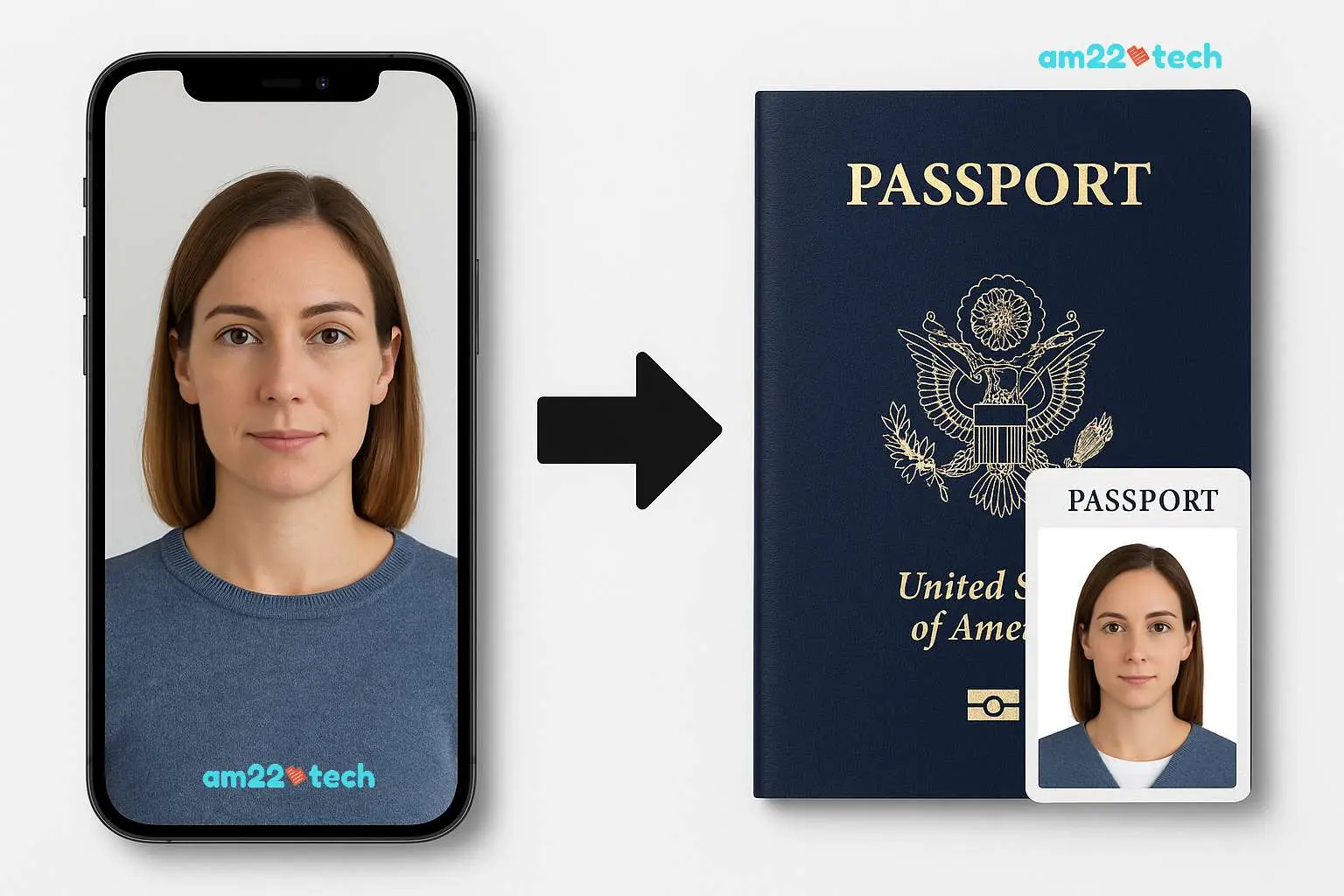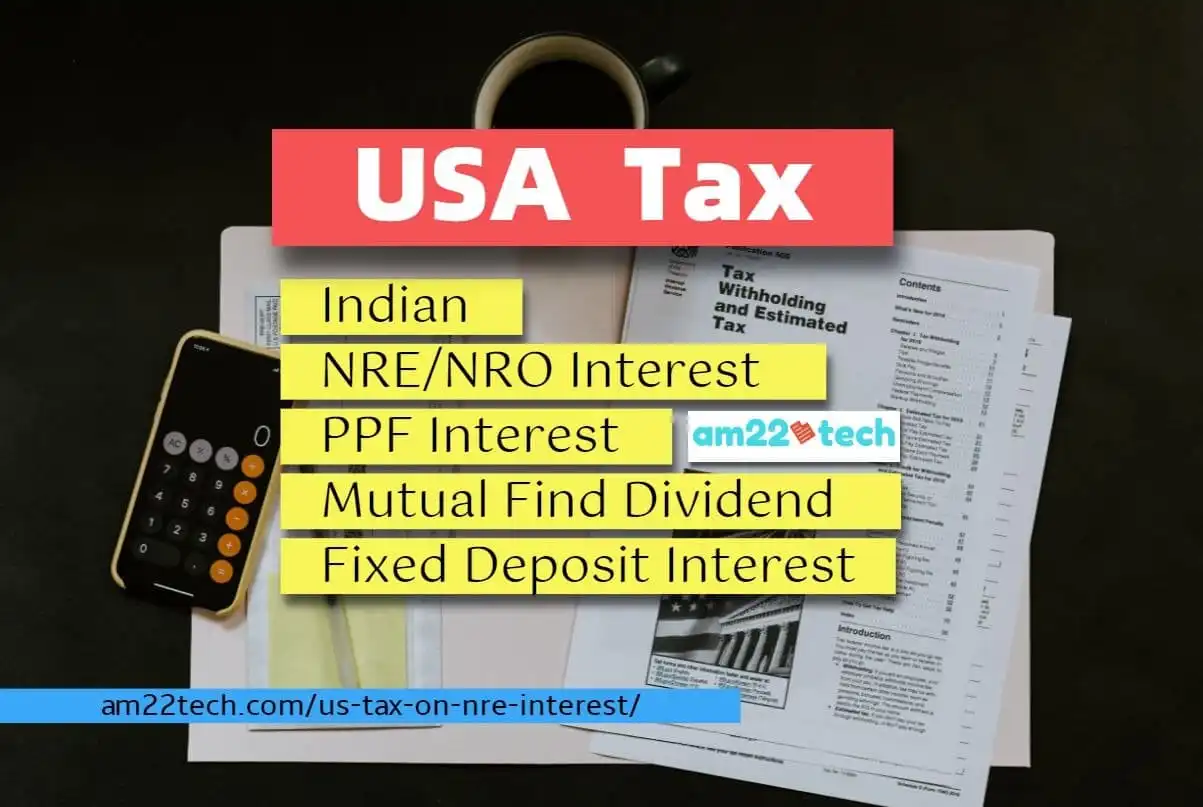|
Listen to this article
|
If you have been living in the USA for more than 6 months today, you should add your Indian income like NRE/NRO account interest, PPF interest, rental income, share dividends, mutual fund dividends, or sale profit to your US income tax return.
As per the IRS and US taxation system, your worldwide income is taxable in the US as long as you are a tax resident.
- You can find your Tax residency by going through the IRS substantial presence test. In simple terms, if you have stayed in the USA for about 183 days, you should add your Indian income to your US 1040 tax return form.
- You can take the foreign tax credit for the taxes paid in India already as TDS (tax deducted at source).
NRE/NRO Tax by the Indian Government
NRE account interest income is non-taxable in India. Hence, no tax is withheld/deducted automatically by Indian banks.
On the other hand, NRO account interest is taxable at a straight 30% plus applicable surcharges and the cess.
You will be issued Indian TDS form 16A by your bank for this tax deduction which can be claimed in the US tax return as a ‘foreign tax credit’.
Calculate the Total Interest in the Indian Bank
Almost all the banks in India pay out interest quarterly (every 3 months).
You just need to pull out each bank (e.g. ICICI, SBI, HDFC, Kotak, etc.) statement ending in March, June, September, and December. Find the interest pay-out and add up.
There is no clear guidance for the months or financial year that should be used that we could find. So, we suggest using the Indian interest from Jan to Dec to add to your US taxes.
This means:
- Count March’s (of the previous year) interest as well.
- Remember, the financial year in the USA is counted from 1 Jan to 31 Dec whereas, in India, it is 1 April to 31 March.
Indian Interest Conversion to USD
IRS publishes the exchange rate for all foreign countries as ‘year-end treasury rates’. Use this rate to convert India (or for that matter, any other country) to reach a USD amount.
It is possible that the current year’s rate is not published by the IRS. In that case, use the xe.com rate for Dec 31.
Example:
If you earned a total of 10,000 INR as NRE interest (add the sub-totals of all your foreign bank account’s interest), then your interest income in USD would be $143 if the exchange rate is 1 USD = 70 INR:
10,000 / 70 = $143
US Tax Form 1040 – Foreign Tax Credit
File the US income tax form 1040 with online services like Turbo Tax, TaxAct, HR Block, Liberty Tax, or FreeTaxUSA.
We have also used e-file.com and their online federal returns software is as good as any other with more free filing options.
Irrespective of the tax filing service you use, you should fill up Schedule B to disclose your Indian income as foreign income.
You should:
- Find the total amount of Tax (called TDS in India) deducted by the bank (by looking at bank statements).
- Indian bank should have sent you Form 16 (an Indian version of the tax form).
ICICI normally sends form 16 by postal mail or email if you have registered. The same may be available online for Citibank, SBI, or HDFC India customers.
On the other hand, If you paid any income tax in your foreign (the tax might have been applied if you are not from India) country, you should enter the information in the appropriate section.
FAQ
Interest earned on an NRE Account or NRO Account is Taxable in the U.S. including NRE FD and NRO FD interest.
You have to add all your income from India to your US income and pay taxes if you are a Green Card holder, PIO, OCI, or legal resident (working on H1B, L1B, H4 EAD, or any other work visa in the USA).
The income includes the Indian mutual fund dividend too if you have invested in an SIP (systematic investment plan) in India.
Indian banks do not issue Form 1099 INT for interest earned in the NRE account. You are responsible for disclosing the foreign interest income on the US income tax form 1040.
Even US-based banks do not issue 1099-INT if the total interest for the year is less than $10.
You have to pay US income tax on the Indian NRO account interest income.
You can claim the TDS deducted by an Indian bank from your NRO account as Tax Paid to a foreign government on your US tax return.
You should convert your Indian savings bank account to an NRO account after moving to the USA.
Converting an Indian savings account to an NRO is part of Indian tax law and not the USA.
If you have lived outside India for more than 6 months, you are counted as an NRI (Nonresident Indian) as per income tax laws.
The interest earned in the Indian public PPF account is also taxable in the US.
Professional Visa Filing Service
Your trusted partner for a smooth application process.
Expert Support & Preparation
Get hassle-free visa extension and EAD filing professional support. Includes preparation, printing, photo editing, mailing and RFE preparation.
Fast & Efficient Service
Applications filed within 1-2 days with all documents ready. Emergency filing is also available to meet urgent deadlines.
Passport Photo Assistance
We professionally edit your photos to meet all US visa requirements, including background removal and proper alignment. Photo printing is included.
Mutual fund dividends received in India are taxable in the USA.
AI Passport & Visa Photos in Minutes!
No studio, no waiting. Get perfectly compliant photos from your phone.
✨ Get My Photo Now See how our AI transforms your phone photo into an embassy-ready passport picture!
See how our AI transforms your phone photo into an embassy-ready passport picture!Any income or profit received after the sale of stocks that are exempted as per Indian taxation can be taxable in the USA.
You should add the total profit to the US tax return and then it will be taxed as per the US rules.
It is required to be added to the IRS 1040 form even if you did not pay any tax on this income in India as per Indian income tax law.
It depends on which US tax form you are filling out.
If you came to the US in October, then you will not be counted as a tax resident for that year as you only spent about 3 months in the US in that year.
In this case, you may not be required to add your Indian interest to the US tax return.
It is better to visit a tax consultant or use a CPA to file your return in this case.
If you worked for more than 6 months in the USA from Jan to Dec on your first visit to the US, you would pass the substantial presence test.
In this case, you would need to show your Indian income and foreign tax paid on your return.
I suggest checking with your tax consultant and filing.
It is better to file using a CPA in your first year to avoid issues.
You can file yourself using free tax software online from next year onwards when the income is not mixed between India and the US.



